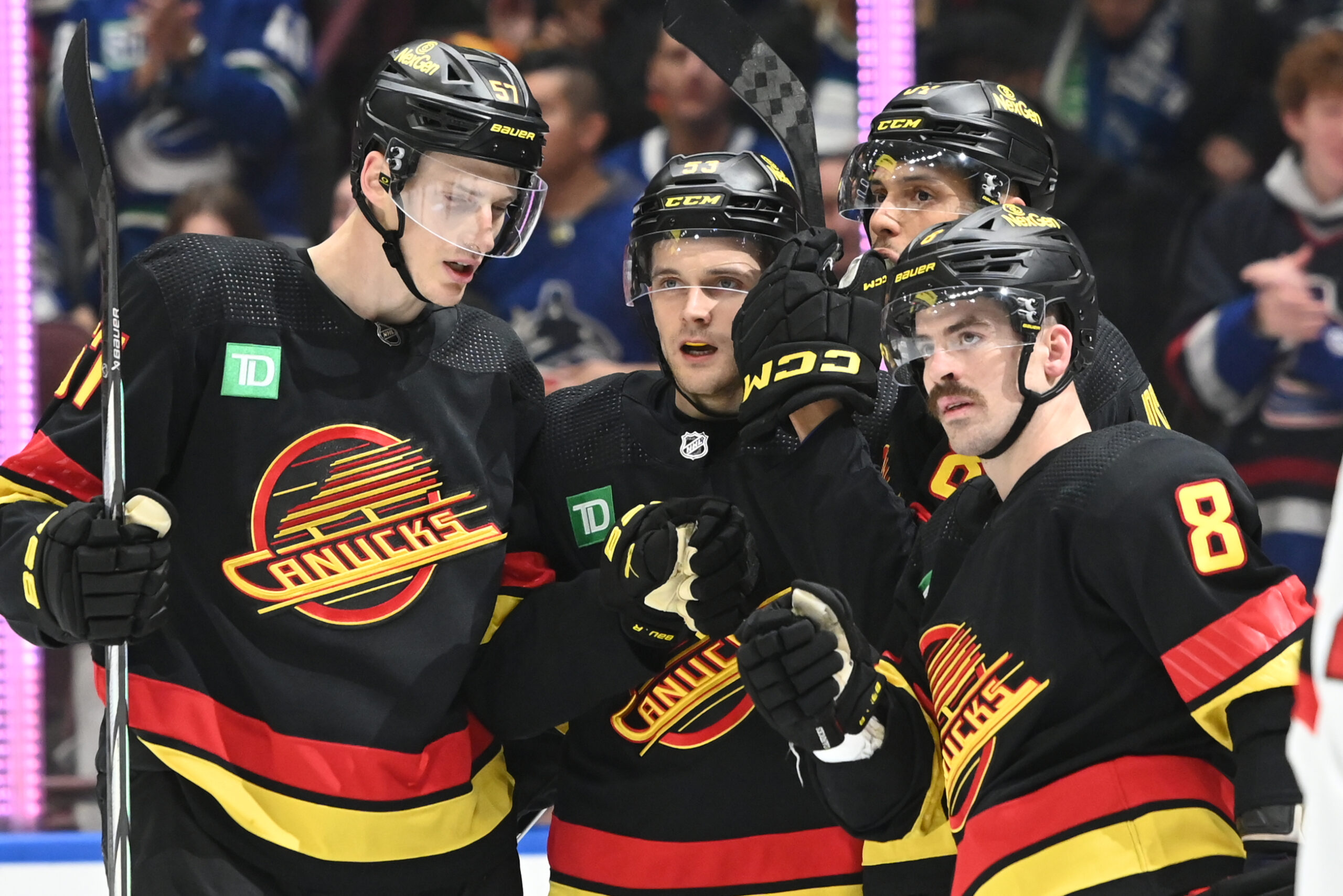The Vancouver Canucks signing Dakota Joshua would delight almost every one of their fans. But plenty of other teams around the league want their fans to be just as happy. If Joshua decides to wait until July 1st to sign a new contract, it probably won’t be with Vancouver.
Going North, Dakota
Joshua is a fan favourite, and for good reason. He played his first full NHL season after signing with the Canucks as a free agent in 2022. That was no surprise, as Vancouver needed affordable players and was willing to take a chance. And make no mistake, signing a 26-year-old with just 42 games of NHL experience is a risk.
But there was plenty to like about Joshua, too. He was productive in the AHL and didn’t look out of place in a limited role with the St. Louis Blues. And he really stood out in AHL Springfield’s run to the Calder Cup. There were plenty of teams looking to give him a try. Vancouver needed to do something special.
They did so by offering not only a two-year deal but also making it one-way. Having a guaranteed NHL income whether he made the big league team or not is a huge difference. However, Joshua saw that there was an opportunity to play at the NHL level, so while the guarantee was nice, it might not have been necessary.
Signing Dakota Joshua Once is Easy
His first season may not have been much to write home about statistically, but it wasn’t bad. Eleven goals and 23 points in 79 games showed he could translate his AHL skills to the next level. The big change came with the coaching change.
Rick Tocchet started giving Joshua penalty-killing minutes. It’s not like they couldn’t risk failure, as the PK was already a disaster. Joshua showed an aptitude for it and started getting ice time late in games. The years it took for him to reach the NHL weren’t wasted as he can think the game well.
Going into the 2023-24 season, it looked like he was fighting for a spot with – among others – Conor Garland. Ends up that the duo worked together extremely well with different centres. Joshua’s defensive sensibilities and board play combined with Garland’s puck control to make a productive and responsible third line.
That’s not gone unnoticed by the rest of the league. If he reaches July 1st, there will be plenty of teams with contracts in hand for the big winger. And at Joshua’s age, this could be his last chance to make the most money of his career.
Signing Dakota Joshua Part II: the Sequel
Part of the equation in signing Dakota Joshua is his motivation. After two successful seasons, he is firmly established as an NHL player. It’s unlikely he sees this AHL again unless he wants to extend his professional career. He’s 28 years old and has a total career earnings of about $1.6 million. In one deal, he might make ten times that.*
There are few guarantees in life, of course, and in sports there are even fewer. Tucker Poolman‘s concussion issues have him on Vancouver’s LTIR list, though he would be playing if he could. No one could blame Joshua if he decides to secure as much money as possible now that the opportunity presents itself. With multiple suitors, he will have plenty of options to choose from.
In general terms, contracts are about risk assessment. The risk in signing Joshua is that he may not play as well as he has been paid for. If this year’s totals were the exception rather than the rule, then that will remain for the length of the contract. The risk in not signing him is that he outplays his deal and ends up as a classic “late bloomer” who becomes a vital cog on a winning team.
The usual aging curve for athletes in high-impact sports is close by. He will get a bit slower, his shot will lose some power, and his endurance will decrease in the coming years. But his “Hockey IQ” – arguably the most important feature of a penalty killer – will remain. That might even improve. And the difference between 28 and 31, even in hockey, isn’t all that much.
The Big Picture
For a Canucks-specific bonus, they’ve finally found someone who plays well with Garland. He provides the team not only his own contribution but also makes a previous investment more valuable. But if the team keeps that pair together, then they are effectively a third line. It’s hard to justify spending too much money that far into the lineup, especially with Garland making almost $5 million himself.
But what if he does more than that?
In their current makeup, the Canucks are weak at wing. While left and right wing are relatively easy positions to find on the free market, the quality of players is often limited. If the Canucks are genuine in their push for a Stanley Cup in the next few seasons, then short-changing the top end of the lineup can be disastrous. Signing Dakota Joshua to a slightly longer or slightly more expensive deal is worth it.
It wouldn’t take much improvement for Joshua to move from a bottom-six role at five-on-five to the middle-six. Indeed, there were times he and Garland and “insert centre here” (usually Teddy Blueger or Pius Suter) were the team’s de facto second line. And if that happens, suddenly a slightly-too-expensive, slightly-too-long contract looks like a steal.
Main photo by: Simon Fearn-USA TODAY Sports
*Hat tip, as always, to the irreplaceable CapFriendly






